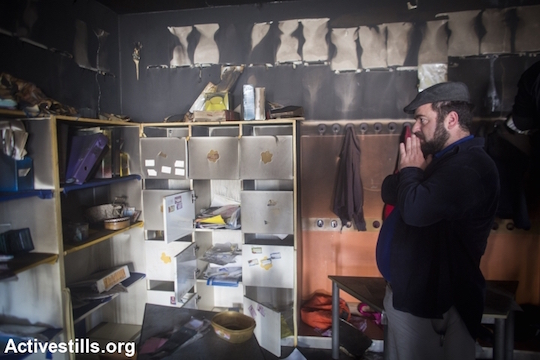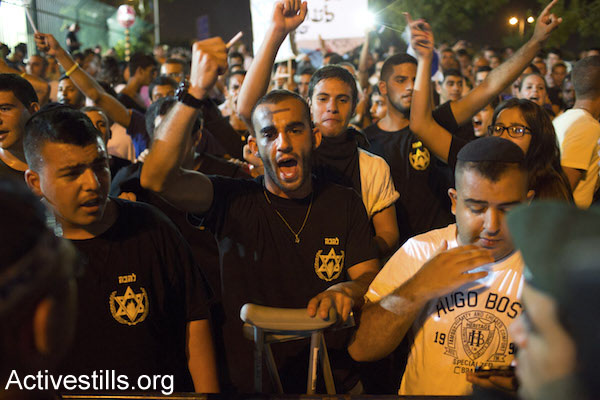Why would American Jews be any less repulsed by the ultra-nationalist tendencies rampant in Israel than they are by those taking hold in America?
By Sarah Stern

The Jewish day school in Rockville, MD where I spent six years as a student received a bomb threat this week. There have been over 100 threats like this at Jewish institutions across the United States since January. When I was nudged and shown an article during a conference panel this weekend, however, the news hardly made me flinch. It had not jarred me, I realized, because I recently moved back from Jerusalem, where no space ever felt completely safe.
My nervous system has adapted to handle this moment. Variations of news alerts — stabbings, demolitions, bombings, rockets, car rammings — flashed constantly over there. This was normal. My employer had installed a sophisticated security tracking system on my phone to make it feel normal. I felt prepared for this moment, but I also felt my lack of fear to be disconcerting.
I moved back to the U.S. largely because this didn’t have to be normal for me — I could leave. Israelis will tell you that it’s not so bad; Netanyahu will tell you that they’re “managing it.” Palestinians won’t tell you that, because it’s worse for them and most can’t leave. The root cause of the violence both here and there is much more than anti-Semitism. Ultra-nationalism is core to our shared story.
So I find it strange when people ask me whether I wish I were in Israel now that Trump is in charge and anti-Semitism is rampant. Isaac Herzog, head of the Zionist Union, Israel’s second-largest political party, has urged the Israeli government to prepare for a mass influx of American Jews. The idea is that I would be safer there, you know, as a Jew. After all, in Jewish day school they taught us that Israel is the safe-haven for all Jews. That it is a place for me to express my full identity.
I have never felt more unsafe — as a leftist, as a Palestinian ally, as a Jew — than I felt in Jerusalem.

There were days of protest when I would feel nervous carrying signs in Arabic on the street in sight of right-wing Israelis. There were other days of stabbings, when I would think twice about the Israeliness of my boots before I wore them to work in East Jerusalem. Locals, especially Palestinians, face real bodily risk in their everyday lives – much more than I did. But that didn’t make me any less afraid.
I come from an America that wasn’t ultra-nationalist, that wasn’t authoritarian, whose patriots were those who welcomed immigrants and where diversity was valued. In the America that I knew, I could wear anything and hold any sign. I would never wake up with the fear that my Jewish day school could be bombed.
Of course anti-Semitic attacks in the U.S. did happen before Trump rose to power. But it is clear that the most bigoted of tribalists have been emboldened by his election to the White House. Trump ran on a platform to ban Muslims and wall out Mexicans. He refused to name Jews as the primary target of the Holocaust. He dismisses anti-Semitic attacks as potentially fake and political stunts.
Let’s talk seriously about political stunts.
Trump and Netanyahu use the same tactics to gain supporters. Just as Trump was elected on a campaign of hate, Netanyahu preyed on fears of “droves of Arabs” participating in democracy, challenging his vision of ethnocracy. Trump and Bibi are both ultra-nationalists who have stoked the most base and tribal instincts of our societies in Israel and America.
Why does Isaac Herzog assume that American Jews aren’t repulsed by these ultra-nationalist tendencies in Israel just as they are in America? I am back in the U.S. to join with other marginalized groups here, because the power and privilege I held in Israel never really made me feel free. I will fight for the type of country that I once knew, and that I know Israel can be too – a democracy that allows me to express my full identity and welcomes everyone to do the same.
Sarah Stern is a D.C. native who recently returned to her hometown after three years in Jerusalem. She is the Storytelling and Communications Associate at the New Israel Fund.
